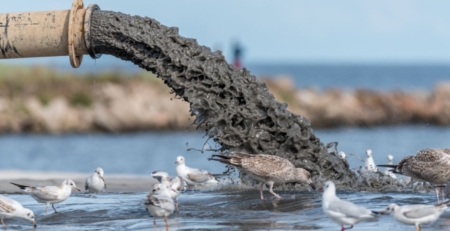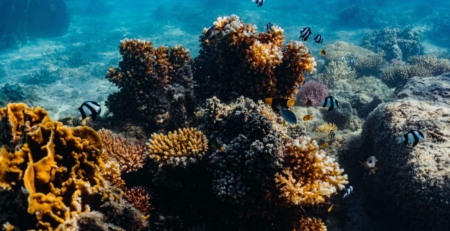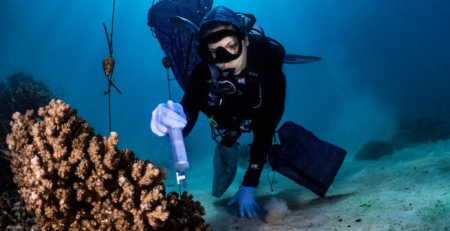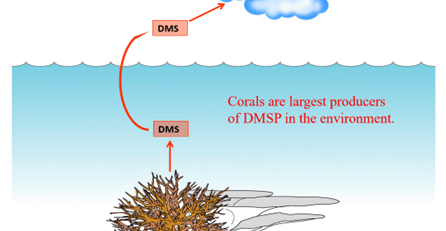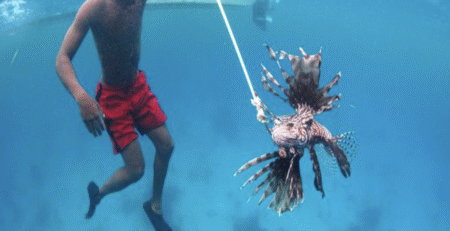A crab-tastic mutualism
By Daniela Restrepo Galeano
Corals are known for their mutualistic relationship with tiny algae that live within coral tissue cells. But this is only one of the multiple collaborations that corals maintain. Mutualism with animals like crabs is less well known and less commonly studied. Nonetheless, crabs have shown to benefit coral health, especially under stressful conditions.
Stressed corals
Corals, like you and me, experience stress throughout their lives. However, their stress does not come from meeting deadlines or from having to study for an exam. It arises from human related pressures like the increase in water temperature, water pollution, and overfishing. These stressors promote coral bleaching, favour algal growth, and increase the chances of corals to be affected by numerous diseases. In an effort to understand what conditions could help corals resist these and other stressors, a group of scientists conducted a study to evaluate how positive interactions between corals and other organisms could be beneficial. More specifically, they studied whether the partnership between the coral, Acropora aspera, and the crab, Cyclodius ungulatus, improves the resistance to co-occurring stressors like high water temperature, coral wounding and macroalgal contact.
A crab, a coral and an algae walk into a bar…
Both field and mesocosm experiments were included in the study. For the mesocosm,
eight different experimental treatments which included wounded corals, presence of algae and presence of crabs were tested to understand how these individual factors, alone and together, impact the way in which corals showed signs of disease. Similarly, the group of scientists tagged wild colonies of A. aspera that maintained a relationship with C. ungulatus. Later, they attached algae to corals and produced wounds that were similar to the ones produced to the corals in the laboratory in order to have similar conditions.
The scientists observed that corals show less symptoms related to disease when crabs are present regardless of the source of stress. However, they found that under all circumstances, the signs of disease increase when corals come in contact with macroalgae (Figure 1). This means that macroalgae pose a significant source of stress for corals and that partnering up with crabs is beneficial for coral health.
Figure 1. Experimental coral with acute tissue loss. This coral went from full tissue cover to this amount of tissue loss within 4 days in the high stress, no crab, algal contact treatment.
But crabs feed on coral…
Despite this sounding alarming, C. ungulatus was observed to feed solely on dead tissue. This was beneficial to the corals as harmful microbes were removed in the process, increasing their chances of recovery. The group of scientists even observed that the size of the wound rapidly decreased in the presence of these mutualistic crabs, while it increased in the absence of them.
The presence of crabs was observed to be so beneficial for corals experiencing stressors that the only corals that did not show any signs of disease were those in mutualism with crabs and with no presence of macroalgae. Given that degraded reefs are experiencing a rise in macroalgal cover, this illustrates the potential for both positive interactions to strengthen resistance against disease and negative interactions to enhance susceptibility.
What is next?
Although this study found the interaction between C. ungulatus and A. aspera to be beneficial in both the field and the mesocosm, it is essential to complement with field experiments across a wider geographic range, using different coral species and other macroscopical mutualists, as different interactions might contribute to differential susceptibilities.
In a time marked by the intensification of environmental change at a global scale, it is crucial to understand the effect of multiple stressors on organisms and how to mitigate those effects.
References
- Renzi Julianna J., Morton Joseph P., Bergman Jessica L., Rowell Devin, Iversen Jr. Edwin S., Gaskins Leo C., Hoehne-Diana Juliana and Silliman Brian R. 2025. An abundant mutualist can protect corals from multiple stressors. Proc. R. Soc. B.29220242936 http://doi.org/10.1098/rspb.2024.2936



